Gardeners Bracknell: Your Complete Guide to Gardening in Bracknell
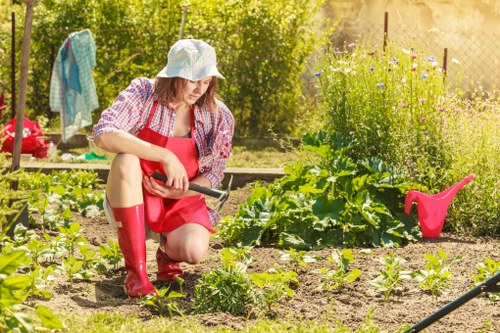
Bracknell, located in the heart of Berkshire, is renowned for its lush green landscapes and vibrant gardens. For both amateur and professional gardeners, Gardeners Bracknell serves as an invaluable resource, offering a wealth of information and services tailored to the unique gardening needs of the area.
Whether you're looking to transform your backyard into a floral paradise or maintain an existing garden, understanding the local climate, soil conditions, and plant varieties is essential. This guide aims to provide comprehensive insights into gardening in Bracknell, ensuring your green spaces thrive throughout the year.
Bracknell enjoys a temperate maritime climate, characterized by mild winters and warm summers, making it an ideal region for a wide range of plants. The fertile soil, coupled with ample rainfall, supports diverse flora, allowing gardeners to experiment with various species and garden designs.
Understanding Bracknell’s Climate and Soil
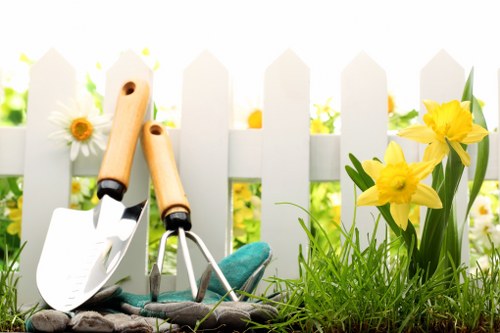
Before embarking on any gardening project, it's crucial to understand the specific climate and soil types in Bracknell. This knowledge will guide your plant selection, planting schedules, and maintenance routines, ensuring your garden remains healthy and vibrant.
Climate: Bracknell's climate falls under the Köppen classification of oceanic (Cfb), meaning it experiences moderate temperatures with no extreme heat or cold. The average annual temperature hovers around 10°C (50°F), with July being the warmest month and January the coldest.
Bracknell receives ample rainfall throughout the year, averaging about 700mm annually. This consistent precipitation supports lush vegetation but also means that proper drainage is essential to prevent waterlogging and root diseases.
Soil Conditions
The soil in Bracknell varies from sandy loam to clay, providing a good foundation for diverse plant life. Gardeners should perform a soil test to determine pH levels and nutrient content, enabling them to amend the soil accordingly.
- pH Levels: Most plants prefer a slightly acidic to neutral pH (6.0-7.0). Testing and adjusting soil pH ensures optimal nutrient uptake.
- Nutrient Content: Incorporate organic matter such as compost to enrich the soil, enhancing fertility and structure.
- Drainage: Ensure that garden beds have adequate drainage to prevent root rot and promote healthy plant growth.
By understanding and adjusting for Bracknell's soil conditions, gardeners can create a nurturing environment that supports robust plant development.
Additionally, employing raised beds and container gardening can mitigate poor soil quality in certain areas, offering greater control over soil composition and drainage.
Regular soil maintenance, including mulching and periodic fertilization, further enhances soil health, fostering sustainable gardening practices.
Choosing the Right Plants for Bracknell
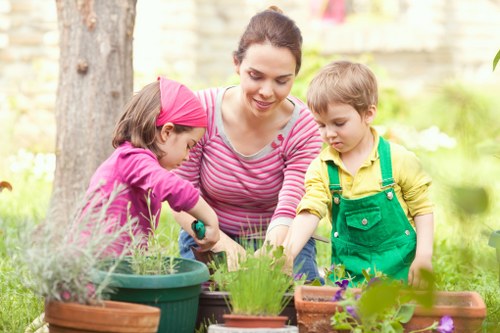
Selecting plants that are well-suited to Bracknell's climate and soil is paramount for a successful garden. Here are some categories and recommended varieties:
Flowers
- Roses: With their timeless beauty and variety, roses are a staple in many Bracknell gardens. They thrive in well-drained soil with plenty of sunlight.
- Lavender: Known for its fragrant blooms, lavender is both decorative and functional, attracting pollinators like bees and butterflies.
- Hydrangeas: These versatile flowers provide stunning blooms throughout the summer and respond well to pruning.
Shrubs
- Boxwood: Ideal for creating structured hedges and borders, boxwood is evergreen and highly adaptable.
- Holly: With its glossy leaves and bright red berries, holly adds year-round interest and supports local wildlife.
- Camellias: Offering exquisite flowers in late winter and early spring, camellias are a beautiful addition to any garden.
Vegetables and Herbs
- Tomatoes: A favorite among gardeners, tomatoes thrive in Bracknell’s warm summers and can be grown in containers or garden beds.
- Basil: This versatile herb complements many dishes and grows best in sunny spots with rich soil.
- Carrots: Easy to grow and rewarding, carrots add a healthy touch to your garden and meals.
Incorporating a mix of flowering plants, shrubs, and edible plants not only enhances the aesthetic appeal of your garden but also promotes biodiversity and sustainability.
Additionally, consider planting perennials that return year after year, reducing the need for replanting and ensuring long-term garden beauty.
Proper plant care, including regular watering, fertilizing, and pruning, will help your plants thrive and maintain their health and appearance.
Professional Gardening Services in Bracknell
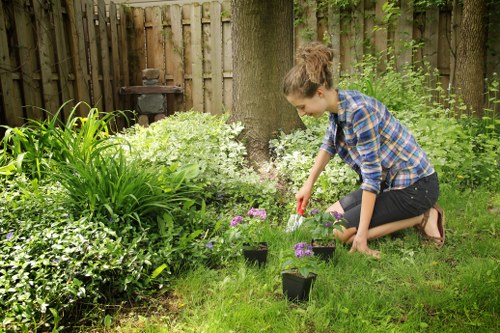
While gardening can be a fulfilling hobby, professional gardening services in Bracknell can provide invaluable assistance, especially for larger projects or complex garden maintenance.
Garden Design and Landscaping
Professional garden designers can transform your outdoor space into a personalized haven. They work with you to understand your preferences and develop a design that maximizes both beauty and functionality.
- Custom Layouts: Tailored garden plans that suit your specific space and style.
- Plant Selection: Expert advice on the best plants for your garden's conditions.
- Installation Services: Professional installation of garden features, including patios, paths, and water features.
Expert landscaping not only enhances the visual appeal but can also increase the value of your property.
Garden Maintenance
Maintaining a garden requires consistent effort and expertise. Professional maintenance services in Bracknell ensure your garden remains pristine and healthy throughout the year.
- Lawn Care: Regular mowing, fertilizing, and aerating to keep your lawn lush and green.
- Pruning and Trimming: Shaping plants and shrubs to promote healthy growth and maintain desired forms.
- Weed Control: Effective methods to manage and eliminate weeds without harming your plants.
- Seasonal Planting: Adding seasonal flowers and plants to keep your garden vibrant and colorful.
These services save you time and ensure that your garden receives the care it needs to flourish.
Horticultural Expertise
For specialized plant care, horticultural services offer expert knowledge on soil health, pest management, and sustainable gardening practices.
- Soil Testing and Management: Assessing and improving soil health to support robust plant growth.
- Pest and Disease Control: Identifying and managing pests and diseases safely and effectively.
- Plant Propagation: Techniques for growing new plants from seeds, cuttings, or divisions.
- Organic Gardening: Implementing eco-friendly practices that promote sustainability and environmental health.
These specialized services are ideal for gardeners seeking to enhance their knowledge and achieve superior garden results.
Maintaining Your Garden Throughout the Year
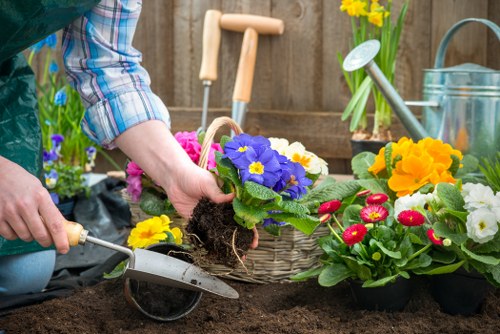
Maintaining a garden in Bracknell requires year-round care and attention. Each season presents unique challenges and opportunities to nurture your garden's growth and beauty.
Spring
- Planting: Ideal time for planting new shrubs, perennials, and vegetables as the weather warms.
- Pruning: Remove dead or damaged branches to encourage healthy growth.
- Soil Preparation: Add compost and organic matter to enrich the soil.
Spring is a time of renewal, perfect for reviving your garden after the winter months and preparing for the growing season ahead.
Summer
- Watering: Ensure consistent watering, especially during dry spells, to keep plants hydrated.
- Weeding: Regularly remove weeds to prevent them from competing with your plants.
- Mulching: Apply mulch to retain soil moisture and suppress weed growth.
Summer's warmth promotes rapid plant growth, making it essential to monitor your garden closely for any signs of stress or pest issues.
Autumn
- Planting: Herbaceous perennials can be planted in autumn for spring blooms.
- Cleaning: Remove fallen leaves and debris to prevent fungal diseases.
- Preparing for Winter: Protect sensitive plants with mulching or frost covers.
Autumn sets the stage for winter by preparing your garden for the colder months, ensuring plants remain healthy and ready to flourish in spring.
Winter
- Protection: Cover vulnerable plants to shield them from frost and harsh weather.
- Maintenance: Prune dormant trees and shrubs to maintain their shape.
- Planning: Use the quieter winter months to plan for next year's garden projects.
While winter may seem dormant, it's a crucial time for maintaining the structure and health of your garden, setting the foundation for future growth.
By providing appropriate care each season, your Bracknell garden will remain a vibrant and welcoming space throughout the year.
Understanding and adapting to the seasonal changes ensures that your garden thrives, offering beauty and tranquility in every phase.
Local Gardens and Green Spaces to Inspire Bracknell Gardeners

Bracknell boasts numerous local gardens and green spaces that serve as inspirations for gardeners. Exploring these areas can provide fresh ideas and appreciation for diverse gardening styles.
South Hill Park
One of Bracknell's premier public gardens, South Hill Park features beautifully landscaped gardens, walking paths, and a variety of plant species. It's an ideal location for gardeners to observe different garden designs and plant arrangements.
Crab Wood: The Bracknell Forest Arboretum
Crab Wood offers an extensive collection of trees and plants, providing a natural laboratory for understanding tree species and their care. The arboretum is a great place for learning and inspiration.
Wellington Statue Gardens
Known for its historical statues and well-maintained flower beds, Wellington Statue Gardens blend cultural heritage with botanical beauty, offering a unique venue for garden enthusiasts.
Crook House Country Park
This expansive parkland includes lakes, woodlands, and open meadows, providing diverse environments for various plant species. It's a perfect spot for nature walks and garden inspiration.
Lexden Wood Nature Reserve
Lexden Wood is a pristine nature reserve with native plants and wildlife. It emphasizes sustainable gardening practices and showcases the importance of conservation in garden design.
Visiting these local gardens and green spaces can enhance your gardening knowledge, offering practical examples of successful garden management and design.
Additionally, many of these locations host events, workshops, and tours, facilitating community engagement and learning opportunities for gardeners of all levels.
These inspirations help Bracknell gardeners stay connected with nature and continuously evolve their gardening practices.
Gardening Tools and Supplies in Bracknell
Equipping your garden with the right tools and supplies is essential for effective and enjoyable gardening. Bracknell offers a variety of local shops and suppliers where you can find high-quality gardening equipment and materials.
Essential Gardening Tools
- Hand Trowel: Ideal for planting, transplanting, and potting.
- Pruning Shears: Perfect for trimming and shaping plants and shrubs.
- Garden Fork: Useful for turning soil and aerating garden beds.
- Watering Can: Necessary for providing consistent moisture to your plants.
- Gloves: Protect your hands while working in the garden, preventing cuts and exposure to pests.
Local Garden Centers and Suppliers
Bracknell is home to several reputable garden centers and suppliers that offer a wide range of products to meet your gardening needs.
- Bracknell Garden Supplies: Known for its extensive selection of plants, tools, and gardening accessories.
- Green Thumb Nurseries: Specializes in native plants and sustainable gardening products, offering expert advice on plant care.
- The Garden Centre: Offers a vast array of seasonal plants, outdoor furniture, and decorative garden items.
These local suppliers not only provide quality products but also knowledgeable staff who can assist you in making informed gardening decisions.
In addition to physical stores, many of these suppliers offer online shopping options, allowing you to conveniently order gardening essentials from home.
Investing in high-quality tools and supplies enhances your gardening experience, making tasks easier and your garden healthier.
10 Best Practices for Sustainable Gardening in Bracknell
Sustainable gardening practices are increasingly important for maintaining healthy ecosystems and promoting environmental responsibility. Here are ten best practices to incorporate into your Bracknell garden:
1. Composting
Composting organic waste reduces landfill usage and produces nutrient-rich soil for your garden. Collect kitchen scraps, garden clippings, and other organic materials to create your own compost.
2. Rainwater Harvesting
Installing rain barrels or other rainwater collection systems helps conserve water and provides a sustainable source for garden irrigation.
3. Native Plants
Planting native species supports local wildlife and requires less maintenance, as they are adapted to the local climate and soil conditions.
4. Organic Fertilizers
Using organic fertilizers instead of chemical ones improves soil health and reduces environmental impact, promoting sustainable plant growth.
5. Pest Management
Encourage natural predators like ladybugs and birds to control pest populations, minimizing the need for harmful pesticides.
6. Mulching
Applying mulch to garden beds helps retain moisture, suppress weeds, and improve soil quality, contributing to a healthier garden ecosystem.
7. Energy-Efficient Lighting
Use solar-powered or LED garden lights to illuminate your garden without significantly increasing energy consumption.
8. Recycled Materials
Incorporate recycled materials into your garden design, such as using reclaimed wood for raised beds or pathways, promoting sustainability.
9. Water-Efficient Irrigation
Install drip irrigation systems to deliver water directly to plant roots, reducing water wastage and ensuring efficient hydration.
10. Seasonal Planting
Plan your planting schedule according to the seasons to optimize plant growth and reduce the need for excessive watering and fertilizing.
Implementing these sustainable practices not only benefits the environment but also enhances the health and longevity of your garden.
Moreover, sustainable gardening fosters a deeper connection with nature, encouraging mindful and responsible stewardship of your outdoor spaces.
By adopting these eco-friendly techniques, you contribute to the preservation of Bracknell's natural beauty for future generations to enjoy.
Exploring Nearby Areas to Bracknell for Gardeners
Bracknell is surrounded by several charming areas, each offering unique features beneficial for gardeners. Exploring these nearby locales can provide fresh ideas, access to additional resources, and opportunities to connect with other gardening enthusiasts.
- Ascot: Located just 5 miles from Bracknell, Ascot is renowned for its picturesque gardens and the famous Ascot Racecourse. The blend of natural beauty and structured garden designs offers inspiration for elegant garden layouts.
- Crowthorne: A mere 4 miles away, Crowthorne features community gardens and local plant nurseries, providing gardeners with access to diverse plant varieties and gardening workshops.
- Shinfield: Only 3 miles from Bracknell, Shinfield boasts lush parks and nature reserves, perfect for observing different plant species and garden ecosystems.
- Sandhurst: Six miles from Bracknell, Sandhurst is home to beautifully maintained public gardens and green spaces, ideal for leisurely garden walks and inspiration.
- Wokingham: Approximately 7 miles away, Wokingham offers numerous garden centers and nurseries, supplying a wide range of plants, tools, and gardening accessories.
- Winnersh: Five miles from Bracknell, Winnersh is known for its greenbelt areas and community gardening initiatives, fostering a collaborative gardening spirit.
- Earley: Situated 4 miles away, Earley features expansive parks and open spaces, offering ample opportunities for gardening events and outdoor activities.
- Twyford: Eight miles from Bracknell, Twyford is famous for its scenic walking trails along the River Loddon, providing serene environments to gather gardening ideas.
- Warfield: Nine miles away, Warfield hosts local garden shows and horticultural fairs, attracting gardeners from across the region to showcase their work.
- Greenham: Ten miles from Bracknell, Greenham offers fertile soil areas and native plant conservatories, supporting sustainable gardening practices.
- Elmbridge: About 12 miles away, Elmbridge is known for its extensive green spaces and traditional English gardens, perfect for those seeking timeless garden inspiration.
- Winkfield: Located 11 miles from Bracknell, Winkfield features charming cottage gardens and community gardening projects that emphasize local plant diversity.
- Wexham: Six miles away, Wexham supports urban gardening projects and provides resources for novice gardeners seeking to start their gardening journey.
- South Lakes: Thirteen miles from Bracknell, South Lakes boasts lakeside gardens and horticultural displays, ideal for gardeners interested in water gardening.
Exploring these nearby areas not only broadens your gardening horizons but also fosters a sense of community among local gardeners. Collaborative projects, shared resources, and collective knowledge enhance the gardening experience, making it more rewarding and enjoyable.
Additionally, attending events and visiting public gardens in these areas can keep you updated on the latest gardening trends, techniques, and innovations, ensuring your Bracknell garden remains current and flourishing.
Embracing the diversity of gardening practices in these nearby locales enriches your own gardening endeavors, allowing you to create a unique and thriving garden in Bracknell.
Frequently Asked Questions
1. What are the best months for planting in Bracknell?
The optimal months for planting in Bracknell are typically spring (March to May) and autumn (September to November). These seasons offer favorable weather conditions that support healthy plant growth.
2. How can I protect my garden from pests naturally?
Encourage beneficial insects like ladybugs and praying mantises, use natural repellents such as neem oil, and implement companion planting to deter pests organically.
3. Where can I find local gardening workshops in Bracknell?
Local community centers, garden centers, and the Bracknell Forest Council often host gardening workshops and events. Check their websites or visit in person for schedules and availability.
4. What native plants are recommended for Bracknell gardens?
Recommended native plants for Bracknell include lavender, holly, foxgloves, yew, and camellias. These plants are well-suited to the local climate and support local wildlife.
5. How do I maintain my garden during the winter months?
Protect sensitive plants with mulch or frost covers, prune dormant shrubs and trees, and ensure proper drainage to prevent waterlogging. Additionally, use organic fertilizers to maintain soil health.
Frequently Asked Questions
Our trusted Bracknell garden services utilize top-of-the-line equipment, including ride-on mowers, precise hedge trimmers, and eco-friendly weed control systems. This ensures efficient maintenance, impeccable landscaping, and environmentally responsible practices. Get in touch with our experienced Bracknell gardeners for a tailored quote.
Yes, our Bracknell team holds all necessary certifications, including public liability insurance and authorized pesticide handling licenses. This guarantees safe and reliable garden services, giving you peace of mind. Contact us today to discuss your garden maintenance needs in Bracknell.
With over 10 years of experience, our Bracknell gardeners have maintained local estates and private gardens with expertise and dedication. Their extensive knowledge ensures your garden receives the best care throughout all seasons. Reach out to our trusted Bracknell team for expert gardening services.
Our Bracknell gardening services are proud members of the Royal Horticultural Society (RHS) and the British Association of Landscape Industries (BALI). These accreditations reflect our commitment to high standards and professional excellence in garden maintenance and landscaping. Contact us for certified garden services in Bracknell.
Yes, our affordable garden clearance services in Bracknell are designed to fit various budgets without compromising quality. We efficiently remove waste, prune overgrown areas, and prepare your garden for any season. Get in touch with our Bracknell team for a customized and cost-effective garden clearance quote.
Our Bracknell-based garden services are fully licensed and insured, ensuring professional and trustworthy care for your garden. With a strong local reputation, our team provides comprehensive maintenance, landscaping, and turfing services. Contact us today to find the best licensed gardeners in Bracknell.
Our Bracknell garden maintenance includes lawn mowing, hedge trimming, weed control, pruning, and seasonal clean-ups. We use eco-friendly methods and professional equipment to keep your garden healthy and attractive year-round. Reach out to our experienced Bracknell gardeners for a complete maintenance plan.
Absolutely, our Bracknell garden services prioritize eco-friendly practices, including organic weed control, sustainable landscaping, and efficient water management. We are committed to maintaining beautiful gardens while protecting the environment. Contact our green-focused Bracknell team for environmentally responsible gardening solutions.
Our Bracknell gardening services are known for their reliability, punctuality, and consistent quality. With a dedicated team of experienced gardeners, we ensure your garden is well-maintained and thriving all year. Trust our Bracknell experts to deliver dependable and professional garden care. Get in touch today!
Our Bracknell landscaping services include garden design, planting, hardscaping, and turfing. Our experienced team works with you to create a bespoke outdoor space that suits your style and needs. Enhance your garden with our professional landscaping in Bracknell. Contact us for a personalized landscape plan.
Yes, our Bracknell gardeners are experts in managing seasonal tasks such as leaf clearance in autumn, lawn preparation in spring, and pruning in summer. Their comprehensive knowledge ensures your garden remains beautiful and healthy throughout the year. Schedule seasonal maintenance with our trusted Bracknell team.
Certainly, our Bracknell garden services include effective pest and disease management, utilizing safe and approved treatments. Our certified gardeners ensure your plants stay healthy using eco-friendly and efficient methods. Protect your garden with our professional pest control services in Bracknell. Contact us for expert assistance.





